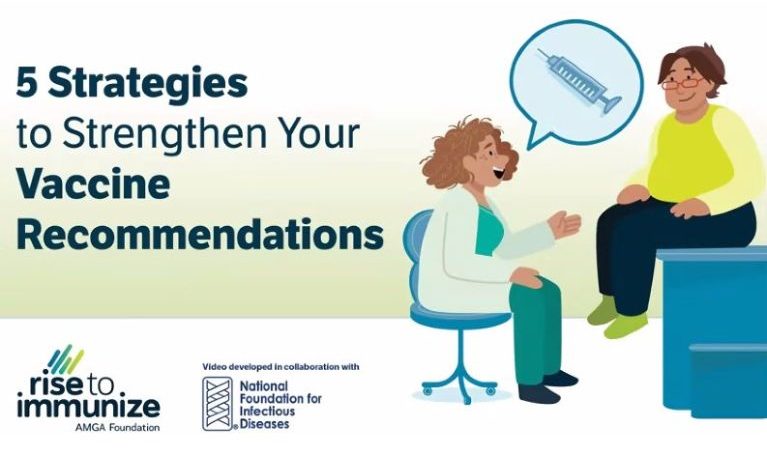
 Special thanks to Saad B. Omer, MBBS, MPH, PhD, director of the Yale Institute for Global Health and associate dean (Global Health Research) at the Yale School of Medicine, for this guest blog post for National Immunization Awareness Month on important lessons learned from COVID-19 vaccination.
Special thanks to Saad B. Omer, MBBS, MPH, PhD, director of the Yale Institute for Global Health and associate dean (Global Health Research) at the Yale School of Medicine, for this guest blog post for National Immunization Awareness Month on important lessons learned from COVID-19 vaccination.
Two years into the COVID-19 vaccine rollout, many US children and adults remain unvaccinated. What lessons have we learned about promoting vaccine confidence?
1. Start early and do not assume success
Early in the COVID-19 pandemic, there was uncertainty about vaccine supply. Many experts assumed that once the supply issue was solved, most people would come running with their sleeves rolled up to get vaccinated. But we have known for years that there is a spectrum of vaccine acceptance, from gung-ho true believers/vaccine acceptors to fence-sitters to outright vaccine refusers. With COVID-19, the vaccine acceptor group was slightly larger but more vocal on social media, which created false perceptions. The data told a different story. According to a survey of US adults conducted by researchers at the Yale Institute for Global Health in May 2020, only 67 percent of US adults responded that they would accept a COVID-19 vaccine if recommended. As affirmation, two years later, according to the Centers for Disease Control and Prevention (CDC), as of August 2022, about 67 percent of the US population is up to date on COVID-19 vaccines. We should not have assumed that everyone would readily accept COVID-19 vaccination.
2. Communication is important but not sufficient alone
Behavioral insights go well beyond communications. We must use “choice architecture” to encourage people to make better decisions about vaccination. From the clinic experience to how appointments are set up, the more defaults that are created for vaccination, the higher the coverage. One of the more effective interventions that we are not fully utilizing is standing orders. That is true for adult influenza vaccination, and it is true for COVID-19 vaccination. It is essential to not focus on communications alone.
3. Insist on rigorous evidence
When it comes to the behavioral aspects of immunization, we cannot simply “wing it.” We must insist on the same rigor of evidence (which can be qualitative or quantitative) for vaccine behavioral science as for vaccine development science. A strong evidence base shows that certain interventions by healthcare professionals work—for example, presumptive communication. When speaking with parents in the clinic, we should say, “It’s time for your child to get vaccinated today” rather than posing the question, “Should we talk about vaccines now?” Presumptive communication does not take away individual choice or rights but frames vaccination as the default.
This is a marathon, not a sprint, and we must continue to focus on behavioral aspects of immunization.
4. Avoid polarization as much as possible
During a pandemic or outbreak, communications must come from career public health servants, not political appointees. With COVID-19, some political entities in the US took advantage of the initial rift about vaccination and exploited it into a wedge issue. Democracy can be loud, noisy, and sometimes combative. In politics, 51 percent gives you a mandate, but in public health, a 51 percent vaccination rate gives you patchy immunity. By comparison, both India and Pakistan are politically polarized countries, but they both had a national consensus on the value of immunization because political leaders built that consensus.
5. Recognize that we are in a different information environment
We must get ahead of factors that influence the information environment. Social media is not just Facebook and Twitter, but also TikTok, Snapchat, Instagram Reels, and YouTube. Mom Facebook groups are still important, but we need to be proactive in where social media is growing and exploding. There is a body of evidence about how to respond to misinformation and disinformation and engage people on social media, beyond fact-checking.
6. Leverage trust in healthcare professionals
If there is one constant across populations, it is that healthcare professionals are the most trusted source for vaccine information. The US should have a national continuing medical education (CME) program to educate healthcare professionals on the latest, evidence-based communication approaches to promote COVID-19 vaccine confidence along with confidence in other vaccines. In addition, vaccine education and counseling should be reimbursable expenses.
7. Invest in social and behavioral science
We must continue to invest in the behavioral side of vaccine interventions. There is a huge return on investment for public health when populations are up to date on COVID-19 vaccines. We should not be just enamored by the biology and technology of vaccinology—we should have the humility, foresight, and policy acumen to invest in evidence-based social and behavioral interventions.
Learn More about Vaccination Strategies
- Register to attend the Clinical Vaccinology Course, developed by the National Foundation for Infectious Diseases (NFID), as an online offering on November 16-18, 2022. Offered for more than 15 years, the course focuses on new developments and issues related to the use of vaccines including the latest CDC vaccination recommendations, practical strategies for ensuring timely immunization, and the ongoing impact and challenges of the COVID-19 pandemic. Learn more at www.nfid.org/cvc.

- View the new animated video, developed by NFID in collaboration with the AMGA Rise to Immunize™ campaign, highlighting five strategies to make strong vaccine recommendations.
To join the conversation and get the latest news on infectious diseases, follow NFID (@NFIDvaccines) and Saad Omer (@SaadOmer3) on Twitter using the hashtags #GetVaccinated and #IVax2Protect, like NFID on Facebook, follow NFID on Instagram, visit NFID on LinkedIn, and subscribe to receive future NFID Updates.
Related Posts

Infectious Diseases in the News
Read recent news of interest from the world of infectious diseases including insights and updates on COVID-19, handwashing, hepatitis, malaria, measles, and respiratory syncytial virus (RSV) …

Vaccines and Heart Health: A Vital Connection
Heart disease can increase the risk of serious or fatal complications from respiratory diseases including COVID-19, flu, and RSV

Harnessing the Power of Local Data
NFID dashboard aims to empower stakeholders with hyperlocal data to increase US adult respiratory vaccine uptake
